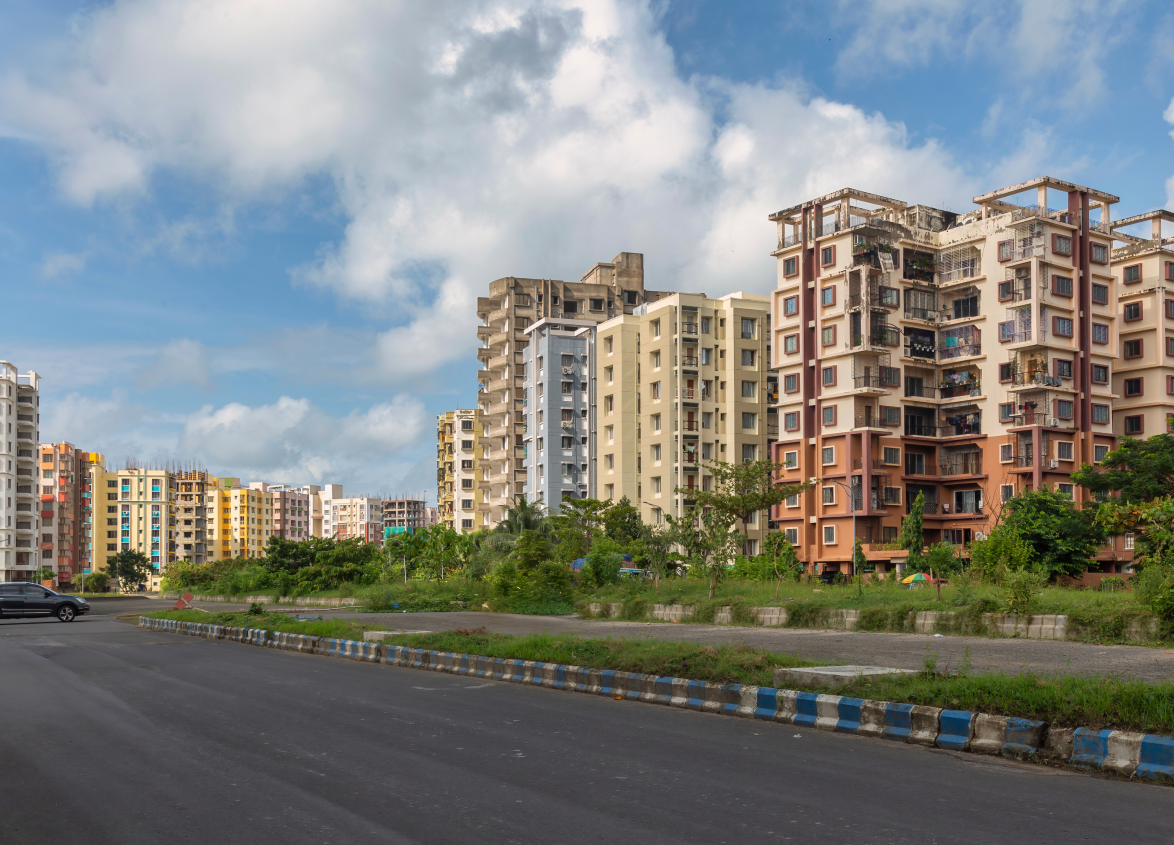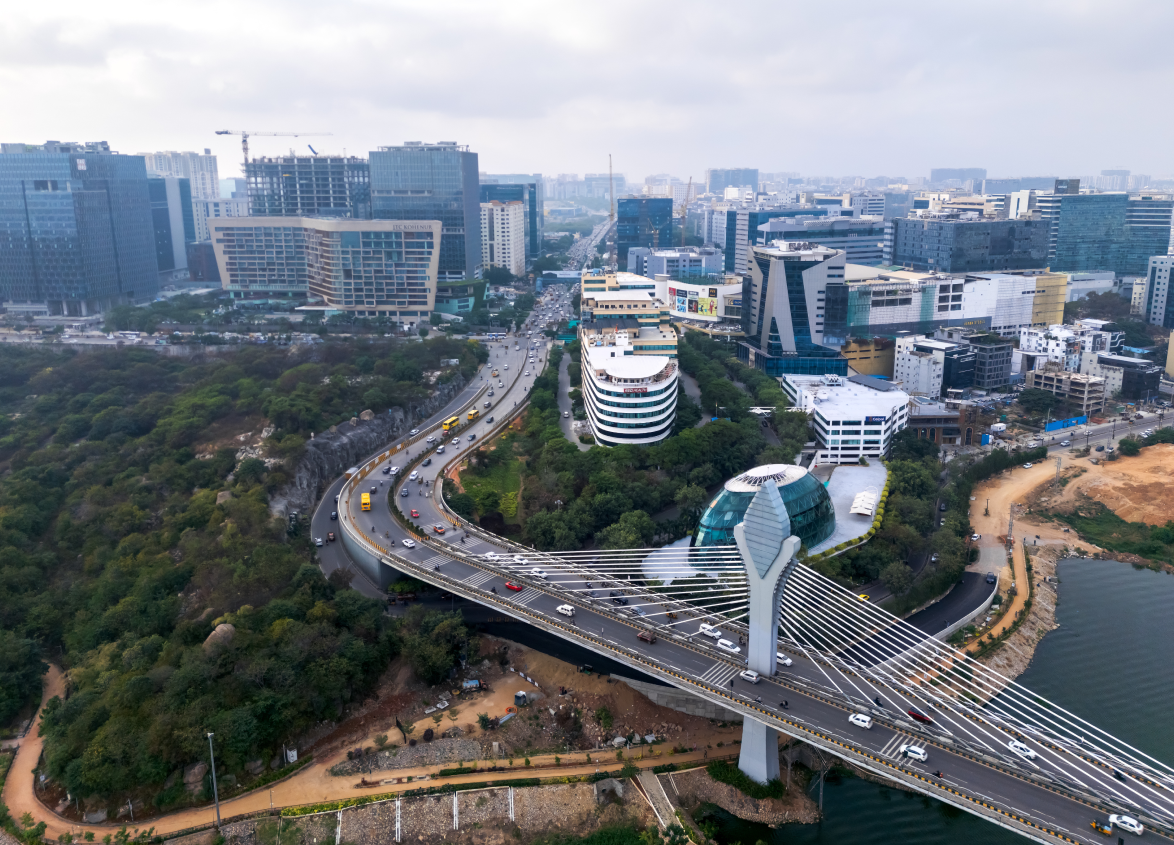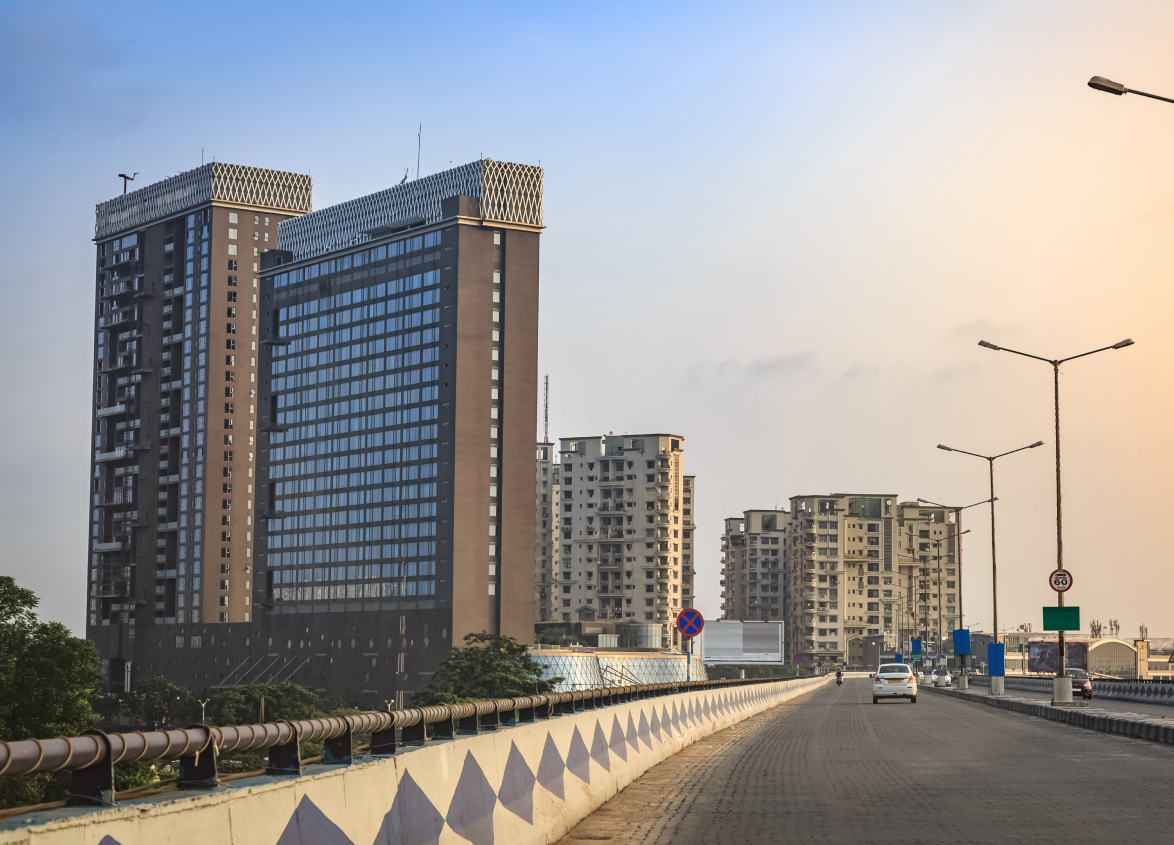
Commercial
Leasing Office Spaces in India: A Step-by-Step Guide for Startups and Enterprises
July 16, 2025
Acquiring office space is not just about having an address—it’s a strategic move that directly impacts your company’s productivity, employee satisfaction, brand image and growth potential. In India’s fast-paced business environment, the demand for office space for lease is surging, especially among startups, MSMEs and expanding enterprises.
Whether you're a bootstrapped startup seeking operational flexibility or a high-capital company maximising long-term value, leasing office space in India provides a balanced, capital-light course of action. However, the commercial leasing process has complexities, ranging from legalities to budgeting, space planning and site selection.
This blog explains how to lease office space to provide you with action-based knowledge and avoidable pitfalls.
What Is Office Space Leasing and How Does It Work in India?
Office space leasing in India is a legal, temporary contract between a property owner (lessor) and a company (lessee) for the right to occupy and operate out of a specified commercial space. These contracts are typically 3 to 9 years, with extension and customisation terms often included, depending on the contract.
Office space leasing is especially prevalent in metro cities, IT parks and tier-1 towns and increasingly, in tier-2 cities where businesses seek flexibility over ownership amid rising real estate costs and expanding talent pools.
Leasing vs. Renting vs. Buying Commercial Office Space in India
While procuring a workspace, three choices are usually considered by businesses:
Office Space for lease:
This involves long-term formal contracts with clause-specific provisions such as lock-in periods and renewal options. It best suits businesses seeking a balance of stability and flexibility. It usually contains maintenance provisions and renewal benefits.
Office Space for Rent:
Renting usually refers to short-term or more flexible agreements, often seen in co-working spaces, business centers, or serviced office environments. These arrangements are typically less formal, offer limited scope for customization, and may include shared infrastructure and services.
Buying Office Space:
Buying commercial office space is a capital-intensive investment, ideal for established enterprises with long-term operational certainty and a fixed geographic footprint. It provides ownership benefits, asset appreciation, and complete control, but lacks flexibility and requires significant upfront investment and long-term commitment. It is also preferred by businesses planning to use the workspace for their own operations (end-use), ensuring full customisation and stability over time.
Leasing strikes the right balance for most startup office solutions, offering control without the high upfront ownership costs.
Leasing vs Renting vs Buying – At a Glance
| Aspect | Leasing | Renting | Buying |
|---|---|---|---|
| Term Length | 3–9 years with renewal options | Short-term (monthly/quarterly) | Long-term ownership (self-use or rental investment) |
| Upfront Cost | Medium (security deposit, fit-outs) | Low | High (capital investment; purchase cost, registration, maintenance) |
| Flexibility | Moderate (lock-in periods apply) | High | Low for self-use; moderate for investors (can lease/sell based on market) |
| Customization | Possible depending on lease terms | Limited or none | Full control (for end use); limited changes if leased to tenants |
| Best For | Growing businesses, MNCs | Startups, freelancers, project teams | - Self-use: Established firms with long-term vision - Investment: Buyers seeking rental income or asset appreciation |
What Should You Consider Before Leasing Office Space in India?
Location Matters:
Your office location can make or break operational efficiency and employee happiness. Choose from India’s prime office locations, such as:
- Bengaluru – India’s startup capital
- Mumbai – The financial capital
- Gurugram & Noida – NCR corporate corridors
- Hyderabad & Pune – Technology-innovation urban clusters
Think about last-mile connectivity, proximity to business parks and access for talent and clients.
Space Planning:
Get precise about your needs:
- How many employees are you currently accommodating?
- What are your 6–12 month growth plans?
- Do you require open-plan seating or enclosed cabins?
- Will customers visit frequently?
This will determine whether you require a ready-to-move office space, a half-furnished shell or a custom-fit design.
Budgeting Beyond Rent:
Rent is only the beginning. Consider:
- Security deposits (usually 3–6 months of rent)
- Maintenance charges
- CAM (Common Area Maintenance) fees
- Electricity, internet, furnishing and IT setup costs
Knowing the total cost of occupancy (TCO) is essential for proper budgeting.
Lease Duration:
Leases are generally between 3 and 9 years. Startups can opt for short-term office leases (under 3 years) with extension possibilities, while large corporations can negotiate long-term leases to improve rental and security terms.
Amenities & Infrastructure:
Contemporary tenants demand more than just four walls. Maximising office spaces includes:
- High-speed internet and power backup
- Parking, cafeterias and washrooms
- Access control and 24/7 security
- Fully furnished plug-and-play facilities or managed office spaces in India
Leading developers like Brigade offer comprehensive workspace solutions across prime Indian cities, combining thoughtful design with operational ease.
Legal & Compliance Readiness:
Experts should review the legal lease agreement. Critical points that need to be checked are:
- Ownership title and property approvals
- Exit clauses and notice periods
- Rent escalation clauses (industry practice: 5–7% per annum)
- Subletting rights (if needed)
- Repair, maintenance and tax obligations
Not questioning these terms might lead to expensive conflicts or company interruptions.
How to Lease Office Space in India: A Step-by-Step Guide
Step 1: Define Your Office Space Requirements
Begin with internal clarity:
- Number of employees
- Preferred city and micro-location
- Preferred workstyle (open-plan, private cabins, or hybrid setups)
- Branding visibility and signage requirements
This will assist you in deciding between co-working spaces in India, flexible office spaces or conventional leases.
Step 2: Research and Shortlist Locations
Shortlist properties on Indian real estate portals and hire property agents in India. Evaluate them based on price, commute convenience and alignment with your preferred locations. Evaluate locations based on:
- Lease pricing and expected escalation
- Commute convenience for employees and clients
- Proximity to your target customer base or industry cluster
Step 3: Conduct Site Visits and Evaluate Properties
Visit shortlisted properties to check:
- Quality of construction and ventilation
- Businesses close to the chosen property
- Nearby amenities like banks, eateries and hospitals
Step 4: Negotiate Lease Terms
This is where you can reduce costs and safeguard your interests. Master the following lease negotiation skills:
- Negotiate rent-free fit-out periods
- Negotiate rent escalation (standard: 5–7% annually)
- Demand flexibility in case of business relocation
Step 5: Legal Documentation and Compliance
You should seek the help of a lawyer to draft or review the lease agreement, verify land titles and approvals and confirm termination and lock-in clauses.
Step 6: Finalise the Lease and Set Up Your Office
Once the agreement is signed, plan for your office setup expenses, including:
- Furniture and IT infrastructure
- Branding and reception
- Security and access control
Specific cost-effective office spaces in India even provide end-to-end managed services, perfect for lean teams.
What Are the Common Mistakes to Avoid in Office Leasing?
1. Committing to long-term leases without a clear understanding of your business growth trajectory.
2. Not factoring in the hidden costs in office leasing, ranging from CAM charges to parking fees.
3. Avoiding legal scrutiny and entering into ambiguously worded contracts.
4. Choosing locations that are inconvenient for employees to commute to.
By avoiding these traps, you grow smartly and not just fast.
Conclusion
India’s commercial leasing landscape is as vibrant and accessible as ever. With the rise of flexible workspaces, shared office space ecosystems and managed offices, businesses of every size now have tailored options.
Whether you’re a startup or an enterprise hunting for commercial property for lease, making informed decisions around leasing can drive operational efficiency, culture and brand equity.
Do your research, consult experts, negotiate smartly and create an office space that helps your team thrive. Because in today’s world, the workspace isn't just where you work—it’s how your business works.
Leasing office space in India offers startups and enterprises an adaptable, cost-efficient alternative to ownership. By focusing on location, budgeting, lease terms, and legal clarity, businesses can secure spaces that align with their growth and brand vision. Use this guide to avoid common pitfalls and negotiate smarter leases in a competitive market.
FAQ's
1. How is leasing different from renting office space in India?
Leasing involves long-term, structured contracts with renewal and customization options, while renting usually refers to short-term or flexible arrangements like co-working or serviced offices with limited customization and higher per-seat costs.
2. What is the typical lease duration for office spaces in India?
Most office leases in India range from 3 to 9 years. Startups may opt for shorter leases with renewal clauses, while large enterprises usually prefer longer leases to secure favourable terms.
3. What are the key costs involved in leasing office space?
Apart from monthly rent, businesses should budget for security deposits, maintenance charges, CAM fees, fit-out costs, electricity, internet, parking, and other operational expenses. These together form the total cost of occupancy.
4. What should businesses check before signing a lease agreement?
Businesses should verify property ownership, lease tenure, lock-in and exit clauses, rent escalation terms, maintenance responsibilities, and sub-leasing rights. Legal review is strongly recommended before signing.
5. How important is location when leasing office space?
Location is critical as it impacts employee commute, productivity, brand image, and client accessibility. Offices close to business hubs, metro connectivity, and residential areas are usually preferred.

Looking for Grade A Commercial Spaces Built for Long-Term Value?
Lease or invest in future-ready developments across Bengaluru, Chennai, Hyderabad, Kochi & GIFT City.
- Grade A commercial developments
- Prime business & IT hub locations
- Lease & investment opportunities
MUST READ
Looking for something specific?
We'd be delighted to help you.

























































































































































































































































































































































































































































